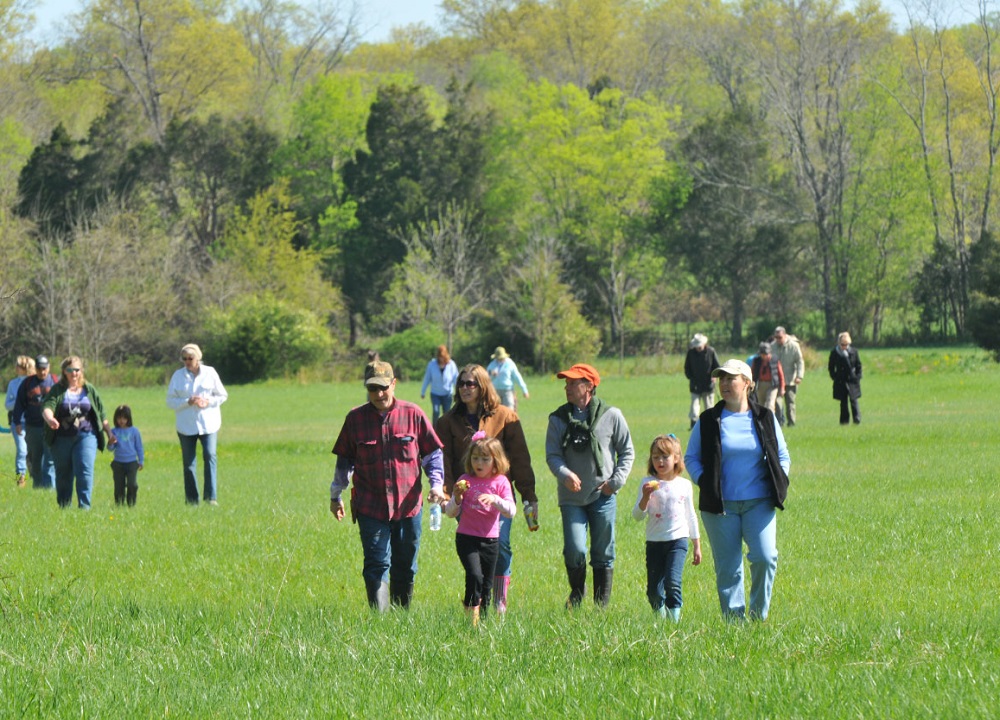HB 1470, which would significantly cut Virginia’s successful land conservation incentive, was tabled in subcommittee on Wednesday, January 18! A big ‘thank you’ to the delegates who serve on Finance Subcommittee #2.
Also to everyone who sent emails or made phone calls and to our partner organizations working on the issue. If anything changes related to this bill or similar bills, we will let you know!
**HB 1470 targeted the Virginia Land Preservation Tax Credit (LPTC) — the single most effective tool Virginia has to protect farm and forest land, clean air and water, historic and scenic landscapes, and important natural communities and ecosystems.
This text was was taken from an email alert sent out on January 17, 2017.
Important Subcommittee Meeting Wednesday, January 18
Dear Supporter,
Before the holidays, we let you know the General Assembly would be considering significant cuts to Virginia’s successful land conservation program (see below). Unfortunately, we received word late yesterday that the referenced bill, HB 1470, is moving much faster than expected. If you care about the water we drink, the food we eat or the historic/cultural/scenic resources of Virginia, now is the time to weigh in!
The bill is scheduled to be heard tomorrow, Wednesday, January 18, by subcommittee #2 of the Finance Committee, as early as 1PM.
Please reach out to any or all of the subcommittee members before they convene tomorrow afternoon. You can also write to your own Delegate and Senator using our Land Preservation Tax Credit advocacy campaign. However, right now, phone calls or personal emails (vs. a form email) to the subcommittee members are most helpful.
Subcommittee #2 of the Finance Committee:
Delegate Cline (Chairman): 804-698-1024, [email protected]
Delegate Orrock: 804-698-1054, [email protected]
Delegate Cole: 804-698-1088, [email protected]
Delegate Marshall: 804-698-1013, [email protected]
Delegate Pogge: 804-698-1096, [email protected]
Delegate Head: 804-698-1017, [email protected]
Delegate Fowler: 804-698-1055, [email protected]
Delegate Filler-Corn: 804-698-1041, [email protected]
Delegate Kory: 804-698-1038, [email protected]
Delegate Sullivan: 804-698-1048, [email protected]
Delegate Heretick: 804-698-1079, [email protected]
You can even just leave a message with their aides along these lines:
Hi, my name is _______, and I want to make sure the Delegate knows I do NOT want the Land Preservation Tax Credit to be cut, please vote ‘no’ on HB 1470.
We’ve put together some talking points you might find helpful. There was also a great op-ed in the Richmond Times-Dispatch on Sunday that’s worth reading.
General Assembly Eyes Further Cuts to Land Conservation
 The Land Preservation Tax Credit is Virginia’s primary method for funding land conservation. Photo by Matthew Hutchinson. |
Dear Supporter,
Happy New Year! Now that most of the craziness of the holidays is behind us, I want to draw your attention to a coming battle to protect Virginia’s land conservation tax incentive program.
The Virginia General Assembly will kick off on January 11, 2017, and with a budget shortfall weighing heavily on the minds of our legislators, a lot of cuts are being discussed. Of particular concern is HB 1470, which would substantially reduce the tax incentives for land conservation.
Send a Letter Before Session Begins
Before the General Assembly Session starts on January 11, let your Delegate and Senator know that funding for land conservation is an important investment in the Commonwealth’s rural economy and natural resources.
The Land Preservation Tax Credit is…
- Good for human health and the environment. The land preservation tax credit leverages private dollars towards the preservation of public benefits including protecting the water we drink, conserving the farms that grow our food, and saving special places that have shaped our history and provide us with healthy places to hike, ride, and camp.
- Effective. When the General Assembly’s Joint Legislative Audit and Review Commission looked at the Commonwealth’s tax preferences in 2012, they highlighted the land preservation tax credit as one of the few tax credits that is effectively meeting its goals. It has been responsible for the conservation of over 741,000 acres of land in Virginia since 2000.
HB 1470: The Details
Big cuts to the land preservation tax credit were made during the 2013 legislative session, so the proposed legislation would effectively amount to a 50% cut in the last 4 years. We’ve taken a hard look at HB 1470, introduced by Delegate Ware R-65, and have provided a summary of it here:
|
Proposed Change: Reduce the total state-wide allocation of tax credits from $75 million to $50 million per year. Implication: With fewer dollars available, less conservation will be happening in the coming years. |
|
Proposed Change: Puts a $2 million cap on the tax credits that can be claimed from a conservation easement donation. Implication: Some of the biggest and most important properties won’t get protected. (ex. the protection of Natural Bridge) |
|
Proposed Change: Limits the amount of credits that can be claimed by an individual taxpayer to $20,000 per year going forward. Implication: This limitation will make it more difficult for conservation easement donors to use Land Preservation Tax Credits. |
|
Proposed Change: Increase the tax credit transfer fee from 2% to 2.5%. Implication: This additional cost reduces the landowner’s incentive to donate an easement. |
If you’d like talking points about the importance of the Land Preservation Tax Credit, we’ve put together a fact sheet on our website with more information.
We will let you know as we learn more. In the meantime, contact your legislator early to let them know that land conservation, and the Land Preservation Tax Credit — our most important tool for achieving it — are important to you.
Sincerely,
Chris Miller, President
The Piedmont Environmental Council
[email protected]
Dan Holmes
Director of State Policy
The Piedmont Environmental Council
[email protected]
